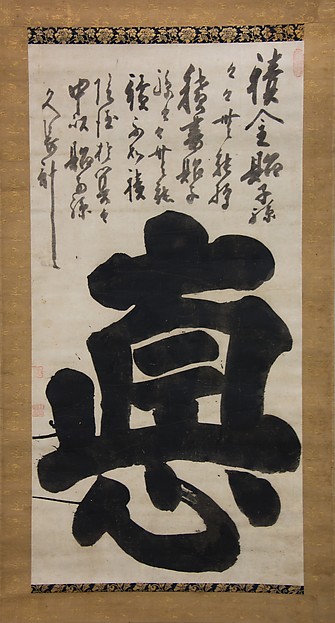by Bhikkhu Bodhi, The Buddhist Channel, Sept 2, 2015A Buddhist Reflection on the Pope’s Climate Encyclical, Laudato si’ On June 18, Pope Francis issued an encyclical letter, Laudato si’ (Praised Be), “On Care for our Common Home,” pointing to climate change as the overriding moral issue of our time.  The encyclical boldly proclaims that humanity’s capacity to alter the climate charges us with the gravest moral responsibility we have ever had to bear. The encyclical boldly proclaims that humanity’s capacity to alter the climate charges us with the gravest moral responsibility we have ever had to bear.Climate change affects everyone. The disruptions to the biosphere occurring today bind all peoples everywhere into a single human family, our fates inseparably intertwined. No one can escape the impact, no matter how remotely they may live from the bustling centers of industry and commerce. The responsibility for preserving the planet falls on everyone. |
Dharma companions is a blog focusing on Dharma activities, information dissemination and bringing awareness to the multifaceted aspects of Buddhism for the community from Shah Alam Buddhist Society (SABS). Postings should be of interest to Buddhist and anyone who seeks information on Buddhism. As the title suggest, we also aim to be a companion to those who seeks our company in this path that we undertake. May you be well, happy and peaceful.
Saturday, September 19, 2015
Climate Change is a Moral Issue
Labels:
Interfaith,
Teacher,
Understanding
Location:
Shah Alam, Selangor, Malaysia
Thursday, September 17, 2015
Buddhists For Bersih 4
Labels:
Opinion,
Skillful Practice
Location:
Shah Alam, Selangor, Malaysia
Wednesday, September 16, 2015
A look into Bodhisaddha Forest Monastery
Published on Aug 13, 2015
https://www.youtube.com/watch?t=144&v=_F7qx22xWSk
A look into the practices and thoughts of the monks and laypeople at Bodhisaddha Forest Monastery, Sydney, a Buddhist monastery in the Ajahn Chah Thai Forest Tradition. Follow the journey of Steve Nguyen as he takes the biggest step of his life.
https://www.youtube.com/watch?t=144&v=_F7qx22xWSk
Labels:
Inspirational,
Video
Location:
Shah Alam, Selangor, Malaysia
Tuesday, September 15, 2015
Virtue, Calligraphy by Hakuin
Location:
Shah Alam, Selangor, Malaysia
Monday, September 14, 2015
The God-Idea
by Venerable K. Sri Dhammananda Maha Thera
from Ven.'s book 'What Buddhists Believe'
The reality or validity of belief in God is based on man's understanding capacity and the maturity of the mind.
The Development of the God-idea
To trace the origin and development of the God-idea, one must go back to the time when civilization was still in its infancy and modern science was still unknown. Primitive people, out of fear of and admiration towards natural phenomena, had believed in different spirits and gods. They used their belief in spirit and gods to form religions of their own. According to their respective circumstances and understanding capacity different people worshipped different gods and founded different faiths.
At the beginning of the God-idea, people worshipped many gods--gods of trees, streams, lightning, storm, winds, the sun and all other terrestrial phenomena. These gods were related to each and every act of nature. Then gradually man began to attribute to these gods, sex and form as well as the physical and mental characteristics of human beings. Human attributes were given to the gods: love, hate, jealousy, fear, pride, envy and other emotions found among human beings. From all these gods, there slowly grew a realization that the phenomena of the universe were not many but were One. This understanding gave rise to the monotheistic god of recent ages.
from Ven.'s book 'What Buddhists Believe'
The reality or validity of belief in God is based on man's understanding capacity and the maturity of the mind.
The Development of the God-idea
To trace the origin and development of the God-idea, one must go back to the time when civilization was still in its infancy and modern science was still unknown. Primitive people, out of fear of and admiration towards natural phenomena, had believed in different spirits and gods. They used their belief in spirit and gods to form religions of their own. According to their respective circumstances and understanding capacity different people worshipped different gods and founded different faiths.
At the beginning of the God-idea, people worshipped many gods--gods of trees, streams, lightning, storm, winds, the sun and all other terrestrial phenomena. These gods were related to each and every act of nature. Then gradually man began to attribute to these gods, sex and form as well as the physical and mental characteristics of human beings. Human attributes were given to the gods: love, hate, jealousy, fear, pride, envy and other emotions found among human beings. From all these gods, there slowly grew a realization that the phenomena of the universe were not many but were One. This understanding gave rise to the monotheistic god of recent ages.
Labels:
Teacher,
Understanding
Location:
Shah Alam, Selangor, Malaysia
Subscribe to:
Comments (Atom)


